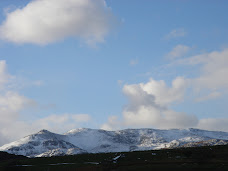How can we live better and look after the place? Books: 'There is No Planet B', 'How Bad are Bananas?', 'The Burning Question'. Mike Berners-Lee
Replying to @DrSimEvans @FT and @IEA
I think the flaw in this is that efficiency usually leads to an even greater increase in output and hence an overall inputs of up not down. That’s the dynamics of systems growth. So, sadly, efficiency does more harm than good until we constrain the carbon.
Roger Harrabin responded: This is the Jevons paradox. I quote wiki:perhaps the most widely known paradox in environmental economics. However, governments and environmentalists generally assume that efficiency gains will lower resource consumption, ignoring the possibility of the paradox arising.
Efficiency *alone* is not enough, but nobody ever said it would be so this talking point feels like a red herring.
We have to go bigger in terms of the interventions we will consider and orient them around the desired outcome, dissolving the idea that any one thing will do it.
Replying to
exactly - projects like HS2 enable growth (previous logo below), whether in the form of increased haulage or delivering more passengers for international flights ... ultimately, it's all more damaging activity and is just growing the system at huge economic and environmental cost.
Graph from Global Commission for Urgent Action on Energy Efficiency
















No comments:
Post a Comment